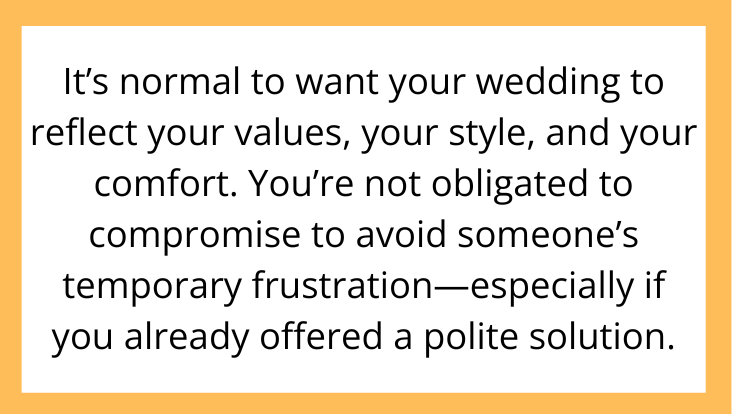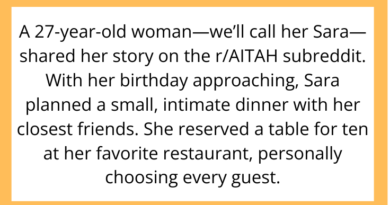AITAH for Not Letting My Best Friend Wear White to My Wedding?
Weddings have a way of bringing out everyone’s opinions—and sometimes, the worst in people. In today’s AITAH scenario, a bride stands her ground over a tradition that many consider sacred: no guest wears white except the bride. But when her best friend decided to break the rule, things got ugly fast.
Let’s dig into what happened, why it struck such a nerve, and whether she was really out of line.
The Story: A Best Friend’s Bold Fashion Choice

The original poster (we’ll call her Emma), a 28-year-old bride-to-be, shared her story on r/AITAH. She and her fiancé were getting married in a classic outdoor ceremony. Months before the big day, Emma sent out detailed invitations that included a dress code: formal attire in any color except white, cream, or ivory.
Simple, right?
Enter her best friend, Claire.
Two weeks before the wedding, Claire texted Emma a photo of her outfit: a sleek, floor-length white gown. She said she’d found it on sale and “couldn’t pass it up.”
Emma was stunned. She politely reminded Claire of the no-white policy. Claire brushed it off, insisting that the dress “wasn’t bridal” and “wouldn’t outshine anyone.”
Emma held her ground, explaining that it made her uncomfortable. Claire got defensive, saying Emma was “being petty over a color.”
When Emma told Claire she wouldn’t be allowed into the wedding in that dress, Claire called her controlling and threatened to skip the wedding altogether.
The Debate: Is White Just a Color?

Team Emma: Respect the Bride
Most people agree that wearing white to someone else’s wedding crosses a line. It’s one of the most basic etiquette rules. Guests are supposed to celebrate the couple, not compete with them.
Commenters pointed out:
-
It’s Not About the Dress: Even if Claire didn’t mean to steal attention, she knew Emma’s feelings and chose to ignore them.
-
Boundaries Matter: When a bride makes a simple request, real friends respect it.
-
Tradition Counts: For many, white symbolizes purity and the significance of the day. Dismissing it as “just a color” feels dismissive.
Team Claire: It’s 2025—Who Cares About White?
A smaller but vocal group felt Emma was overreacting:
-
Times Have Changed: Not everyone cares about old wedding traditions.
-
Intentions Over Appearances: If Claire wasn’t trying to overshadow Emma, why should it matter?
-
Inclusivity: Some said the focus should be on celebrating love, not policing attire.
Still, even many in this camp agreed that if Emma asked her not to wear white, the respectful thing was to choose something else.
What’s Really Happening Here?
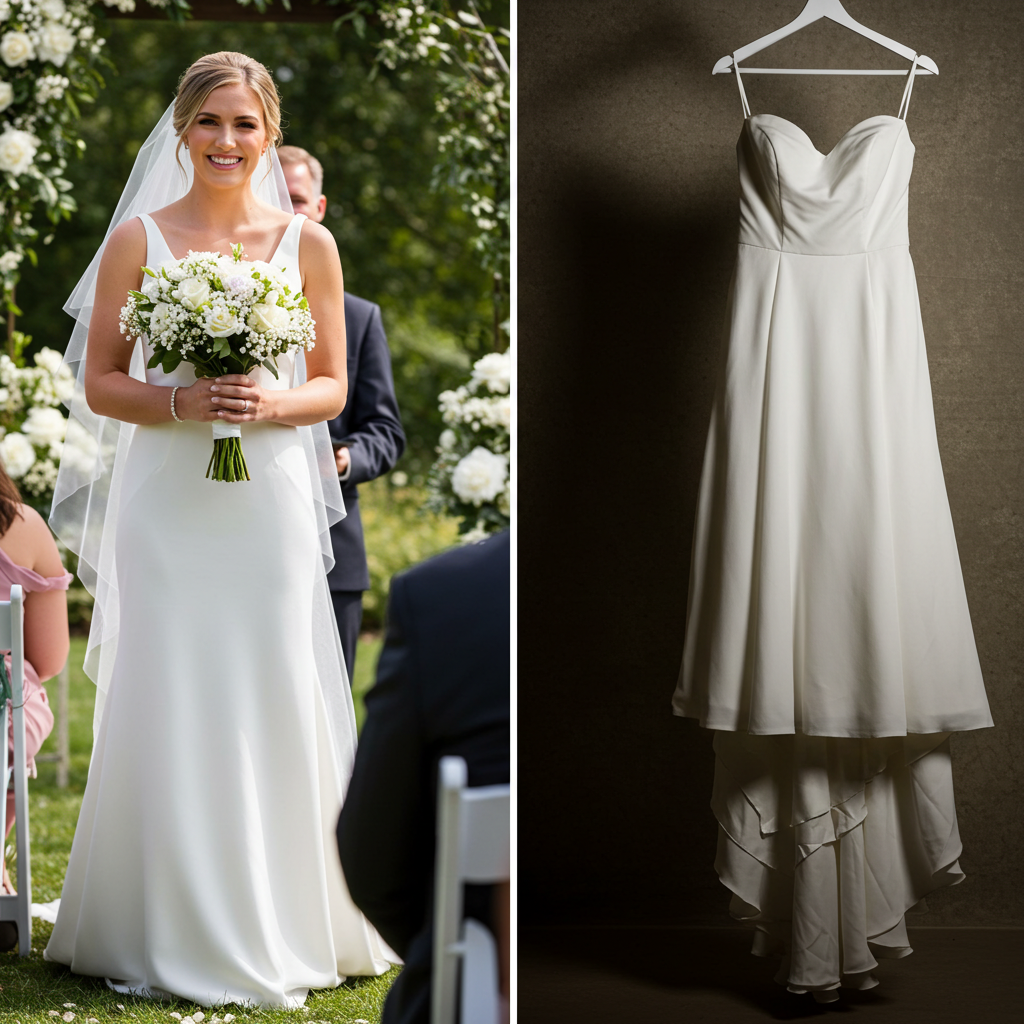
This isn’t just about a dress. It’s about respect and boundaries.
Emma made her wishes clear. She didn’t demand anything extravagant—just that her friend avoid a single color. When Claire insisted on wearing it anyway, she sent a message: My preference outweighs your comfort on your wedding day.
That’s why so many commenters felt Emma was not the villain here.
When “No” Means “No”

This situation is a perfect example of how some conflicts escalate:
-
A clear boundary is set.
-
Someone decides that boundary doesn’t apply to them.
-
The other person enforces the boundary.
-
The first person feels slighted and escalates.
At its core, it’s not about the dress. It’s about whether Claire respects Emma’s feelings.
A Reality Check: Your Day, Your Rules
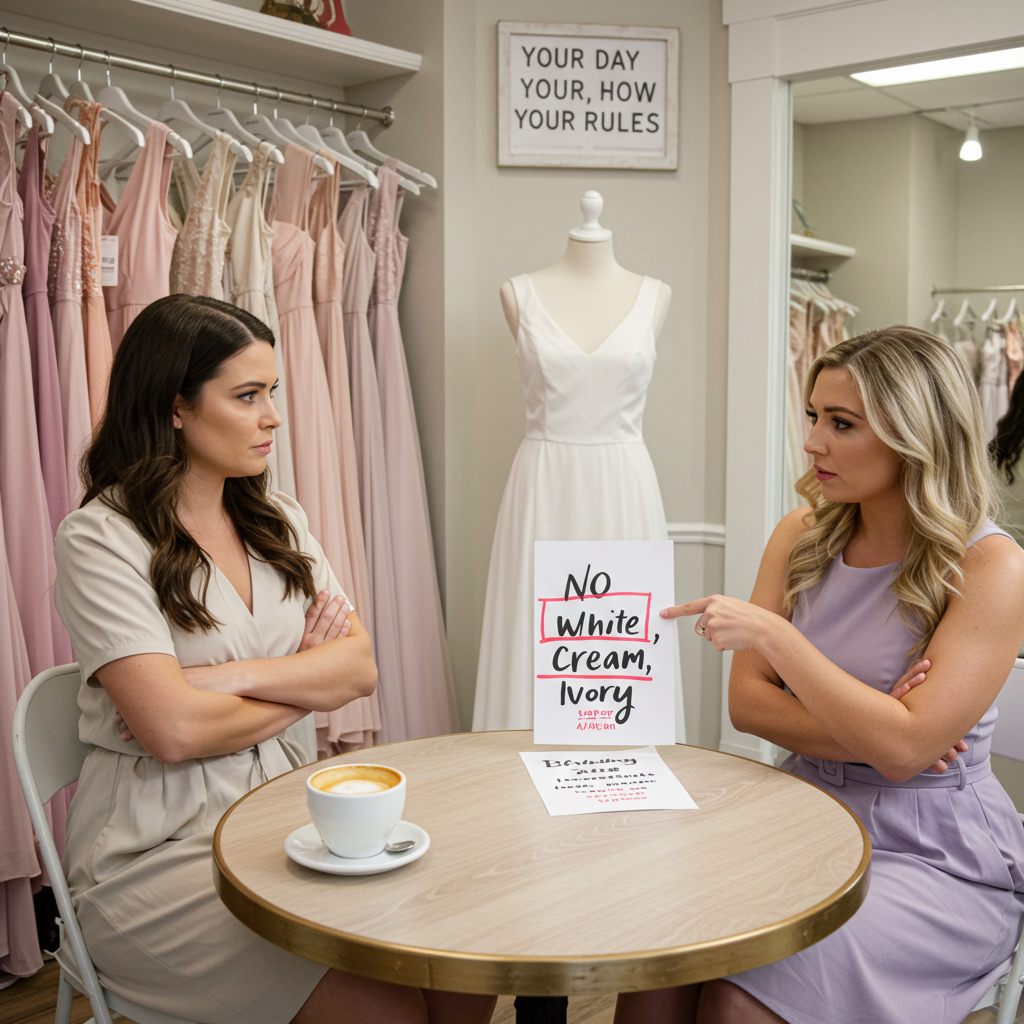
It’s normal to want your wedding to reflect your values, your style, and your comfort. You’re not obligated to compromise to avoid someone’s temporary frustration—especially if you already offered a polite solution.
Emma didn’t tell Claire she couldn’t come. She simply asked her to wear any other color. That’s not controlling—that’s a reasonable request.
What Could They Have Done Differently?
If you ever find yourself in a similar situation, here are a few tips:
-
Communicate Early and Clearly: Emma did this well by outlining expectations in the invitations.
-
Be Firm But Kind: Emma calmly explained her discomfort.
-
Offer Alternatives: Emma told Claire she’d help pick out another dress.
At the end of the day, if someone can’t respect a basic request, it may say more about them than it does about you.
The Verdict: Not the Villain
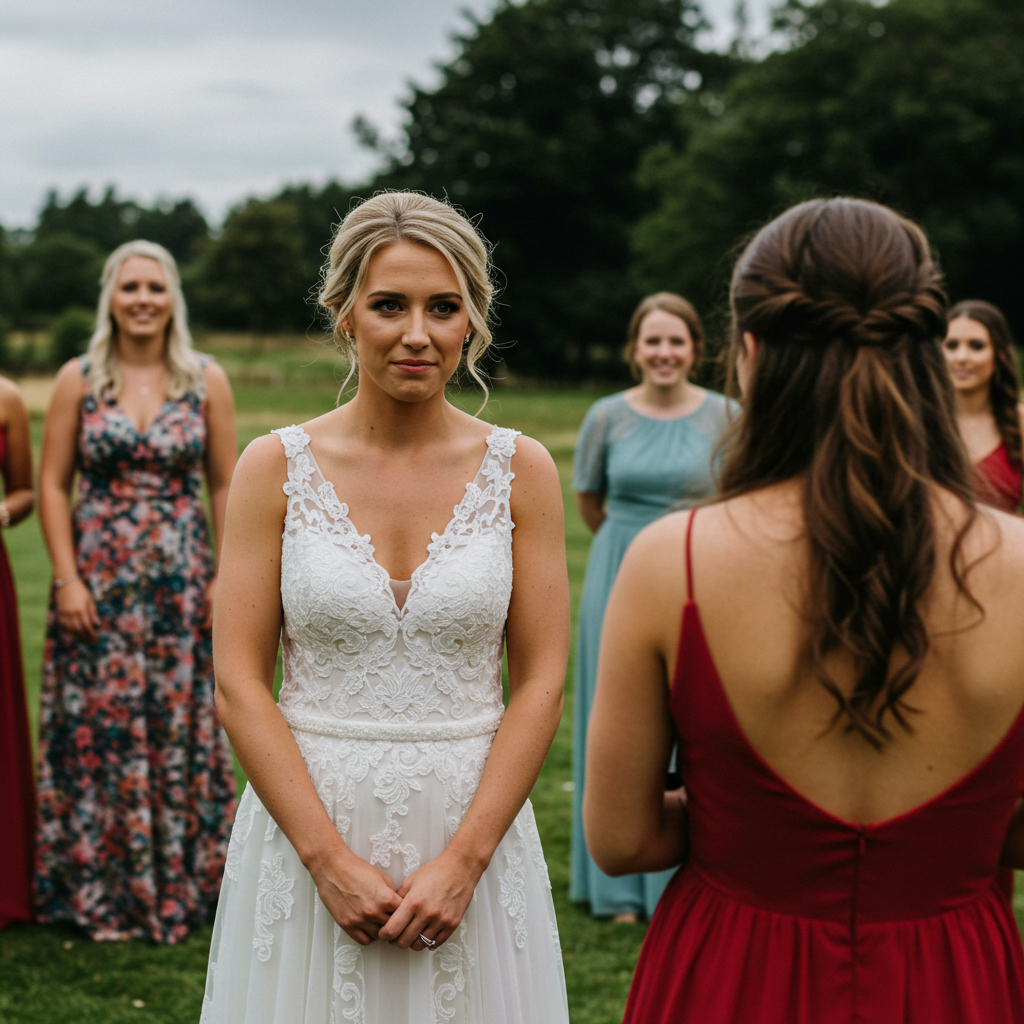
Most of the r/AITAH community agreed: Emma was not the villain. Asking a friend not to wear white to a wedding isn’t unreasonable—it’s standard etiquette. If Claire felt so strongly about wearing that dress, she had every right to skip the wedding—but she didn’t have the right to expect Emma to cave.
